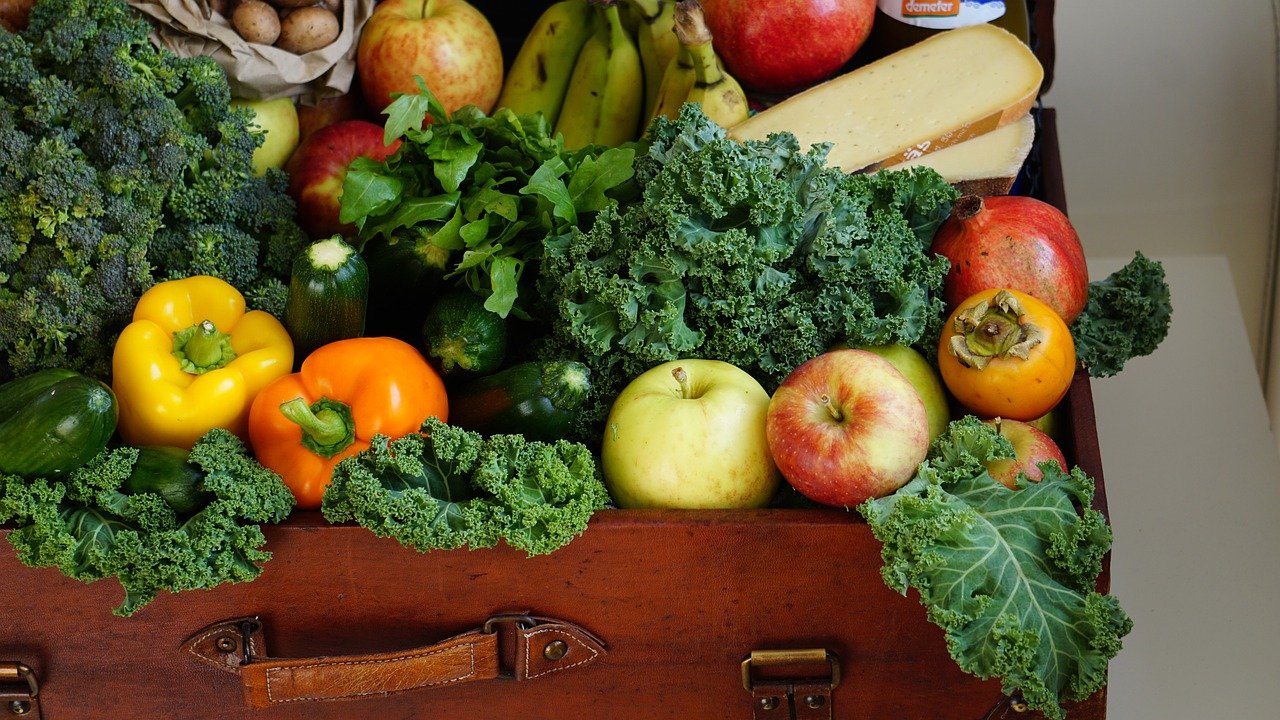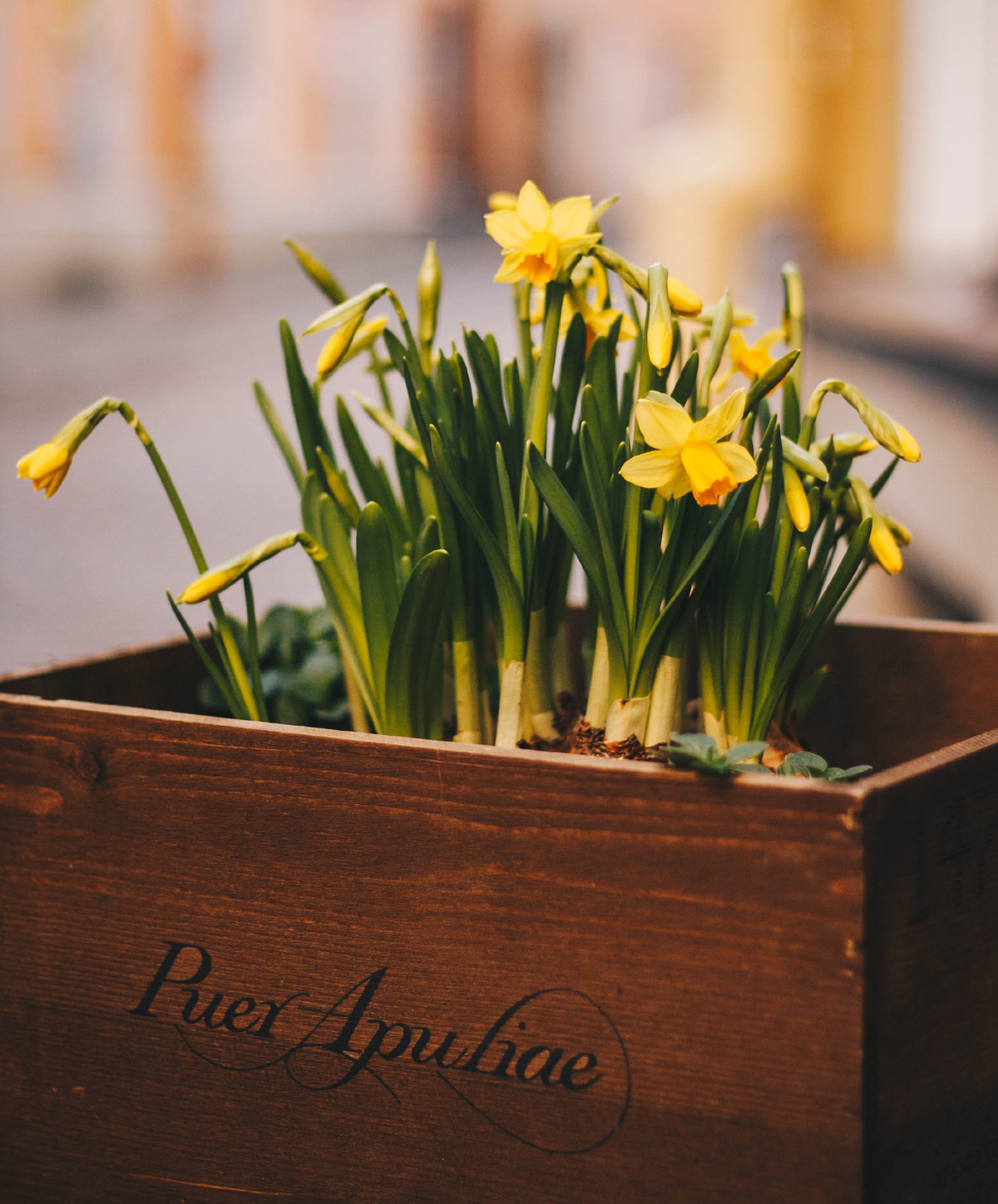Money Saving Grocery Tips: What You Should and Shouldn’t Buy Organic

Have you ever stood in the produce section of your grocery store glancing back and forth between the organic apples and the conventional (regular) apples wondering “Why should I pay more for organic? They look exactly the same!” I have, and nine times out of ten I’ll choose the conventional apple simply because they are cheaper. The truth is buying one or two apples at a time makes it hard to conceptualize the benefits I receive for spending that extra money on organic quality and I think this might be the case for many of us.
Why Buy Organic?
In order to understand how we can save money when it comes to organic produce, we must first understand what “organic” really means. The term “organic” can be confusing and often times, it sounds like a health fad that will come and pass.
Organic refers to a crop or animal raised without the use of pesticides or antibiotics. In today’s day in age, many farmers and crop growers like to get the most yield out of what they’ve got so they use extra hormones or pesticides to grow larger amounts of food that will last longer. The concept is a great one and really helpful for communities who aren’t as close to sources of food, but the problem is it isn’t natural. Over time, continuous consumption of unnaturally raised crops or animals can have negative effects on our nutrition. Many of these chemicals or hormones decrease the amount of nutrients therefore making fruits, vegetables and meats less healthy.
What To Buy Organic
The most harmful conventional foods are those that most easily absorb pesticides. Whether they have thinner skin like apples or grapes, or they have more surface area to allow pesticides to infiltrate (like berries), you should only consume the organic variety of these fruits and vegetables when possible. Additionally, fruits and vegetables that are coming from farther away will be sprayed with more preservatives, ridding this produce of most of their nutrients. This list of the twelve most pesticide-prone foods is called the Dirty Dozen.
The Dirty Dozen is a list of foods that are most susceptible to chemicals in crop raising and in which you SHOULD purchase the organic variety. According to Organic.org, they are:
- Peaches
- Apples
- Sweet Bell Peppers
- Celery
- Nectarines
- Strawberries
- Cherries
- Pears
- Grapes (Imported)
- Spinach
- Lettuce
- Potatoes
A good rule of thumb when you’re in the grocery store and can’t remember this list is to consider the fragility of the skin or leaves of your fruit and vegetable. The thinner the skin, the higher chance you should still buy organic. But don’t forget, that leaves many fruits and vegetables that you don’t need to buy organic.
What You Don’t Need To Buy Organic
Saving money is just as important as eating healthy and with this list of produce that doesn’t need to be organic, you can do both. Not all fruits and vegetables are grown with harmful additives or pesticides. Sometimes certain produce isn’t sprayed as heavily with pesticides. Additionally, fruits and vegetables with thicker skins are generally much better at keeping harmful chemicals out of the food inside. Not to mention, when the skin is thicker (like with oranges and lemons), we don’t eat the skin anyway. That means that buying organic fruits and vegetables with thicker skins serves virtually no benefit over their cheaper conventional counterparts. Save your extra bucks and buy the following produce items from the conventional aisle.
According to Organic.org. the 12 produce items least contaminated by pesticides are:
- Onions
- Avocado
- Sweet Corn (Frozen)
- Pineapples
- Mango
- Asparagus
- Sweet Peas (Frozen)
- Kiwi Fruit
- Bananas
- Cabbage
- Broccoli
- Papaya
Just remember, there is no need to buy organic thick-skinned produce!
More Organic Money Saving and Healthy Tips
Pay attention to what your family eats. If your family loves apples, go for the organic apples as they are probably ingesting many chemicals from conventional apples. If you notice you’re buying grapes and no one’s eating them, it’s not as necessary to buy the organic variety. Make a list of your family’s favorite fruits and vegetables and keep it with you when you go grocery shopping.
Shop Seasonally. Many grocery stores like to feature seasonal produce by putting these items on sale. Many grocery stores that feature organic foods will promote their organic items as they are seasonal, allowing savings to be had for both conventional and organic produce.
The Author:
Hillary Marshak








